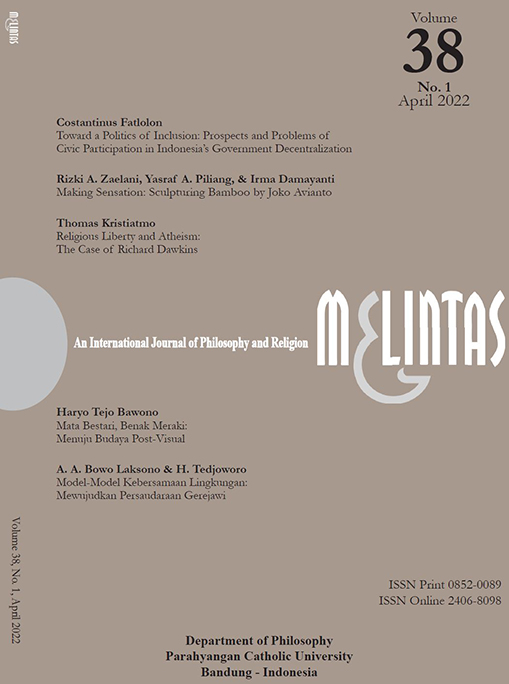Religious Liberty and Atheism: The Case of Richard Dawkins
Main Article Content
Abstract
Through the Second Vatican Council, the Catholic Church asserts the import of religious liberty for every individual and believes that one is entitled to live out one’s faith. Thus, through Dignitatis Humanae, the Church has revealed her intention to create inter-religion dialogues and to encourage respect for the positive values of different religions. This raises a question as to whether such dialogues and respect as voiced in Dignitatis Humanae are applicable when it comes to the issue of atheism, a pressing issue faced by the Church today. This article explores the engagement of such document with atheism. Since atheism covers various views coming from a number of authors, this current article focuses only on the atheism as promoted by Richard Dawkins. Building his atheism upon science, Dawkins’ views are worthy of our attention in today’s world, which is characterised by unending scientific revolutions.
Article Details

This work is licensed under a Creative Commons Attribution-NonCommercial 4.0 International License.
MELINTAS applies the Creative Commons Attribution (CC BY NC) license to articles and other works we publish. If you submit your paper for publication by MELINTAS, you agree to have the CC BY NC license applied to your work.
